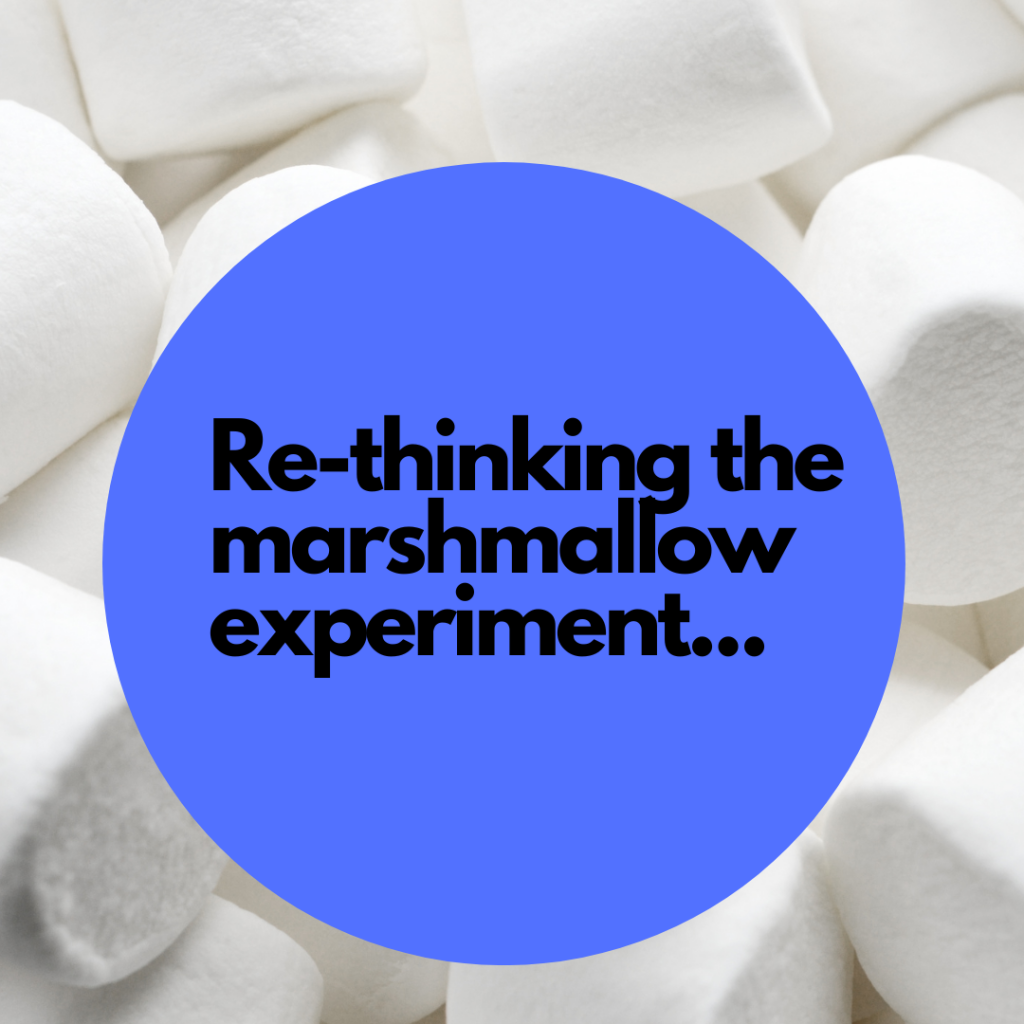Sunday Blog 76 – 19th March 2023

The podcast Invisibilia is still riveting my attention. Like this 2016 episode. What must it be like to be a scientist whose best-known piece of research, aka The Marshmallow Test seems to be persistently and widely misunderstood? In summary, researcher Walter Mischel offered children aged four one single marshmallow. They were told if they could wait while he left the room for a bit, they would get two marshmallows. If they ate the marshmallow while he was away, that’s all they would get. One marshmallow.
If you’ve heard of this experiment, chances are you mistakenly think if we demonstrate poor impulse control as a youngster and eat the one marshmallow rather than waiting to get a second one, then that’s us for life. Burdened forevermore with our weak willpower and a life trajectory of failure or not reaching our full potential.
Actually he was trying to demonstrate the opposite – he had already discovered that personality is not a fixed thing. We will act very differently with our parents than we will with our friends. Our children. Our colleagues. At the time the 2016 Invisibilia episode, Mischel was still alive and they interviewed him to help clear things up about his marshmallow experiment.
“Well, it seems one crucial detail was left out of conversation. Some kids were given strategies to help them resist the tempting treat, such as closing their eyes, while others were not. And, it was the kids who were best at deploying these strategies who had greater success in later life.”
https://www.npr.org/sections/health-shots/2018/09/21/650015068/remembrance-for-walter-mischel-psychologist-who-devised-the-marshmallow-test
He discovered that we can use a number of levers to manage our brains. The way we frame situations, think about ourselves. There is so much more to the story than having fixed personalities that dog us for life. He had to write a book in 2014 called The Marshmallow Experiment, more than 50 years after he had first done the experiment to try to clear things up.
Then I jumped to a 2018 episode which included a researcher, Matthew Salganick who decided to stage a giant hackathon, where data nerds vied to create the algorithm to crunch thousands of data points on hundreds of kids over a decade and a half. Would there be an algorithm that could predict which children would prevail, and which would succumb to adversity? Spoiler alert, no. There are just too many ways life can go.
Don’t worry about the marshmallow or the algorithms. The still, small voice within us is the one to listen to and we just never do know what will happen.

This. Yes. It’s. Perfect.
Pip. I needed to read this today. Thankyou xx
You’re welcome – sorry it took me so long to respond!!